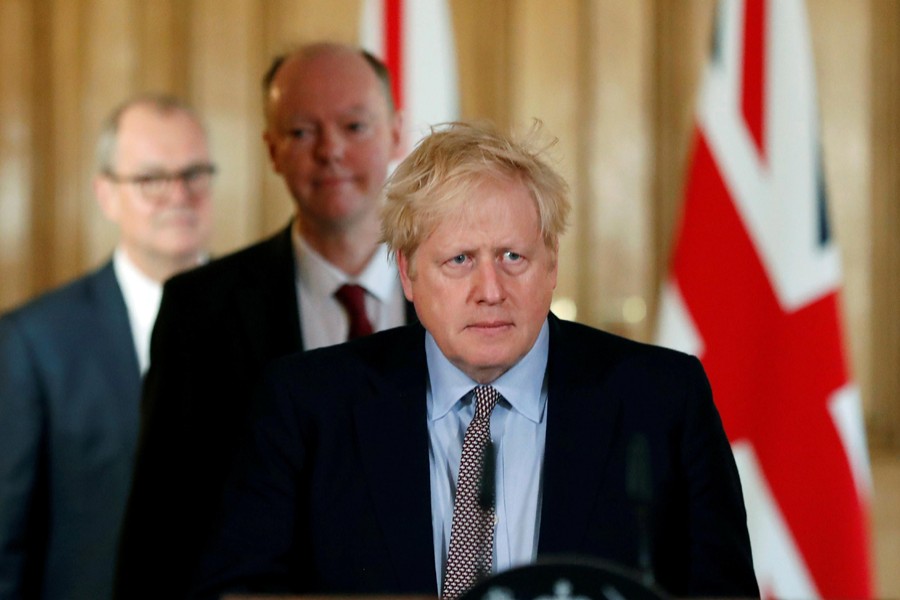British Prime Minister Boris Johnson’s condition is improving and he is able to sit up in bed and engage with clinical staff, finance minister Rishi Sunak said on Wednesday (UK standard time) as Johnson remained in intensive care battling COVID-19.
Johnson was admitted to St Thomas’ hospital on Sunday evening with a persistent high temperature and cough and was transferred to intensive care on Monday.
The 55-year-old British leader, who tested positive for the new coronavirus nearly two weeks ago, has received oxygen support but has not been put on a ventilator.
“The latest from the hospital is that the prime minister remains in intensive care where his condition is improving,” Sunak said at a daily government coronavirus news conference.
“I can also tell you that he has been sitting up in bed and been engaging positively with the clinical team.”
Later, Downing Street issued a brief statement, expected to be the last update on Johnson’s condition until Thursday. “The Prime Minister continues to make steady progress. He remains in intensive care,” it said.
While he is out of action, the country is entering what scientists say is the deadliest phase of the outbreak and the government is pondering the question of when to lift lockdown measures that are playing havoc with the economy.
Total UK hospital deaths from COVID-19 have risen by a daily record of 938 to 7,097 as of 1600 GMT on April 7.
But the number of new infections and hospital admissions is starting to show signs of flattening, Stephen Powis, medical director of the National Health Service, told the news conference.
“We are beginning to see the benefits (of the lockdown) I believe but the really critical thing is that we have to continue following instructions - we have to continue following social distancing, because if we don’t the virus will start to spread again,” he said.
Johnson’s designated deputy, Foreign Secretary Dominic Raab, will chair a meeting today (Thursday) to discuss how to deal with a review of the lockdown measures.
“We committed that there would be a review in and around three weeks (from the start of the lockdown). That review will be based on the evidence and the data provided by SAGE,” said Sunak, referring to the Scientific Advisory Group for Emergencies.
Britain’s uncodified constitution, a collection of sometimes ancient and contradictory precedents, offers no clear, formal “Plan B” if a prime minister is incapacitated. In essence, decisions have to be made collectively by the cabinet.
Should Raab become unwell, Sunak will be the next in line to take over.
In the latest of a raft of measures to rescue the economy and society from the worst effects of the crisis, he announced an extra 750 million pounds ($930 million) of funding for charities so that they could continue their work.


